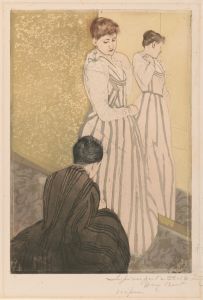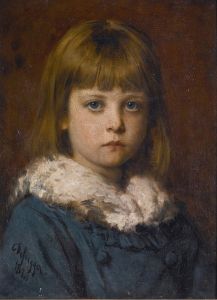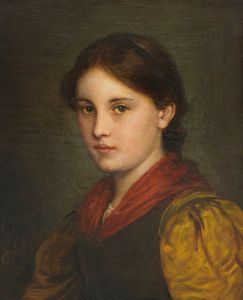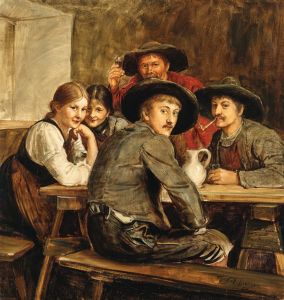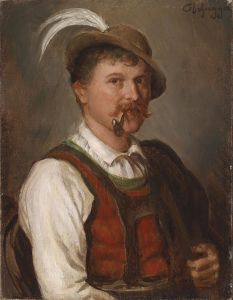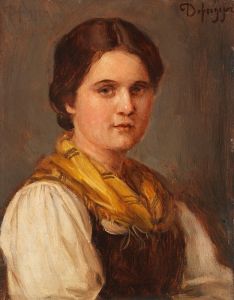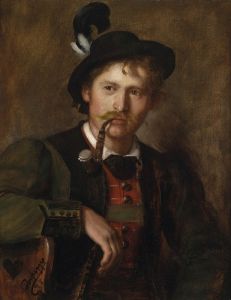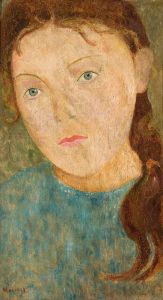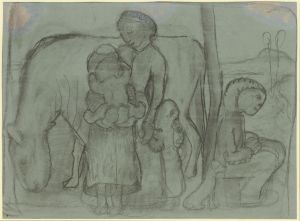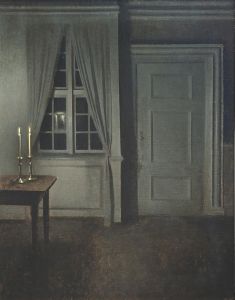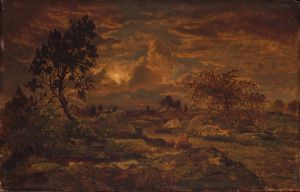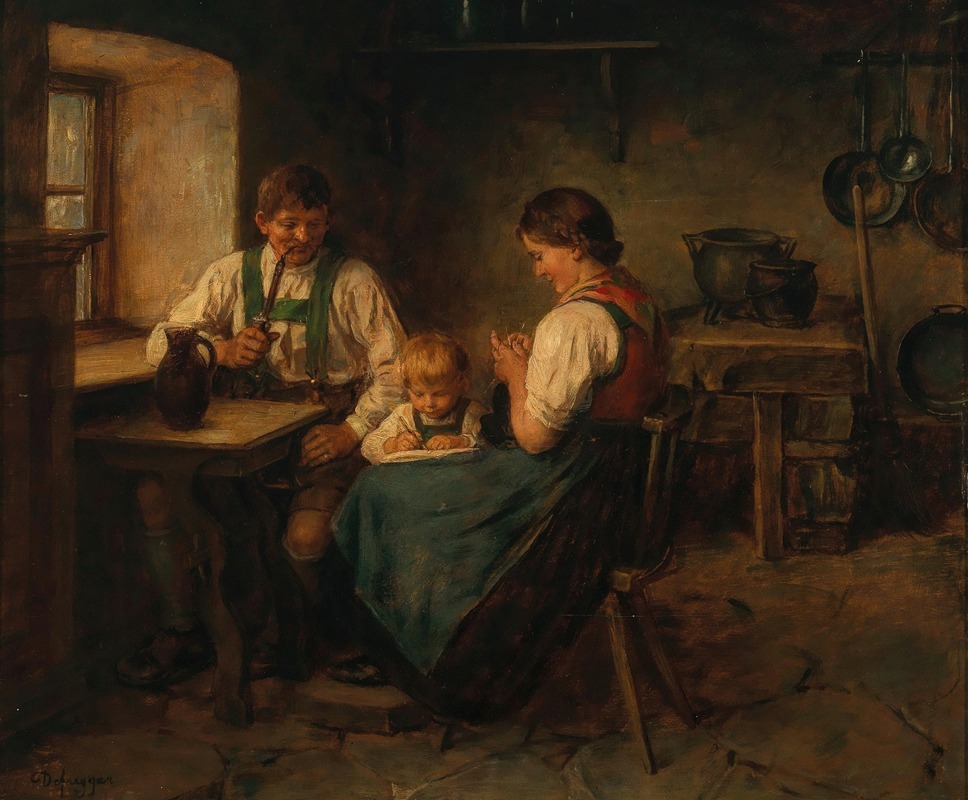
End of the Work Day
A hand-painted replica of Franz von Defregger’s masterpiece End of the Work Day, meticulously crafted by professional artists to capture the true essence of the original. Each piece is created with museum-quality canvas and rare mineral pigments, carefully painted by experienced artists with delicate brushstrokes and rich, layered colors to perfectly recreate the texture of the original artwork. Unlike machine-printed reproductions, this hand-painted version brings the painting to life, infused with the artist’s emotions and skill in every stroke. Whether for personal collection or home decoration, it instantly elevates the artistic atmosphere of any space.
"End of the Work Day" is a painting by the Austrian artist Franz von Defregger, who was known for his genre scenes and depictions of Tyrolean peasant life. Born on April 30, 1835, in Stronach, Tyrol, Defregger became one of the prominent figures in 19th-century Austrian art. He studied at the Academy of Fine Arts in Munich, where he was influenced by the realism movement and the works of Wilhelm von Diez and Karl von Piloty.
The painting "End of the Work Day" captures a moment of respite and relaxation after a day's labor. Defregger's works often focused on the daily lives and traditions of rural communities, and this painting is no exception. It portrays a group of peasants gathered in a rustic interior, likely a farmhouse or a tavern, engaging in conversation and enjoying each other's company. The scene is characterized by its warm, earthy tones and meticulous attention to detail, which are hallmarks of Defregger's style.
The composition of the painting is carefully arranged to draw the viewer's eye to the central figures, who are illuminated by the soft, natural light filtering through the room. The expressions and postures of the characters convey a sense of camaraderie and contentment, reflecting the artist's deep appreciation for the simple, yet profound, aspects of rural life. The setting is filled with various objects and furnishings that add to the authenticity of the scene, such as wooden benches, a table with food and drink, and traditional clothing worn by the figures.
Defregger's ability to capture the essence of Tyrolean culture and his skillful use of light and shadow make "End of the Work Day" a notable example of his work. The painting not only serves as a visual record of 19th-century peasant life but also as a testament to the artist's dedication to portraying his subjects with dignity and respect.
Throughout his career, Franz von Defregger received numerous accolades and recognition for his contributions to art. He was appointed a professor at the Academy of Fine Arts in Munich and was a member of several prestigious art academies. His works were widely exhibited and collected, and he played a significant role in shaping the genre painting tradition in Austria and Germany.
"End of the Work Day" remains an important piece within Defregger's oeuvre, exemplifying his mastery of genre painting and his commitment to depicting the everyday lives of ordinary people. The painting continues to be appreciated for its historical and cultural significance, as well as its artistic merit.






